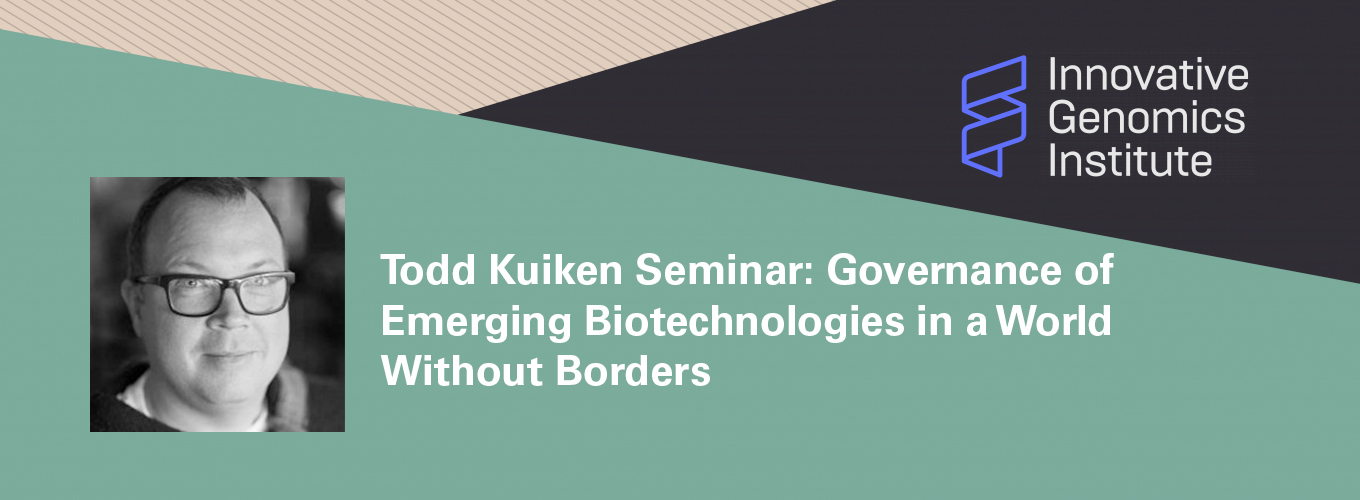
- This event has passed.
Todd Kuiken Seminar: Governance of Emerging Biotechnologies in a World Without Borders
January 22, 2019 @ 12:00 pm - 1:00 pm

Todd Kuiken Seminar: Governance of Emerging Biotechnologies in a World Without Borders
As synthetic biology, genome editing, gene drives, CRISPR, and the biotechnologies of tomorrow continue to emerge, international treaties are struggling to keep pace. While recognizing that biotechnologies are rapidly developing, with potential benefits and potential adverse impacts; how will treaties develop governance systems to both enable benefits while preventing or minimizing adverse effects? How do international treaties that address access and benefits sharing agreements based on “physical genetic material” incorporate (or not) digital sequence information? If engineered gene drives do not recognize a country’s or indigenous community’s sovereign lands; how does the international community address a situation where one country decides to move forward while another, or indigenous community, says no? And how does the International Union for Conservation of Nature, the global authority on the status of the natural world and the measures needed to safeguard it, incorporate (or not), the tools of biotechnology? These are just some of the complicated questions international treaties have been debating over the last 10 years. Join us for a discussion as I examine these and other issues through my personal experiences inside these debates.
Speaker:
Todd Kuiken Senior Research Scholar, Genetic Engineering and Society Center North Carolina State University
Location:
Energy Biosciences Building, Room 115, University of California at Berkeley